MercoPress. South Atlantic News Agency
Tag: Venezuela
-
Sunday, May 20th 2018 - 13:15 UTC
Venezuela: Proselytism, pro-government advantage and hunger on the eve of the presidential election; the crisis gets worse
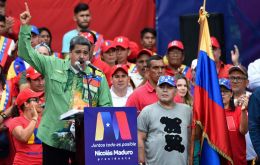
A few hours before the presidential election of May 20 in Venezuela, which is not recognized by dozens of countries in the region and is classified as “fraud” by the opposition of that country, official statements and messages favorable to the candidate and current president , Nicolás Maduro, have flooded the programs of the open media in Venezuela, according to a report by the Press Institute and Venezuela Society (IPYS).
-
Saturday, May 19th 2018 - 09:38 UTC
Trump imposes sanctions against the powerful Venezuela clan of Diosdado Cabello
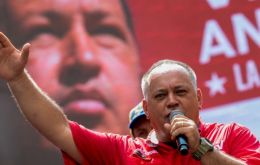
Two days before presidential elections in Venezuela, the Trump administration on Friday announced sanctions against a powerful governing party politician, accusing him of drug trafficking, extortion, money laundering and embezzling government money.
-
Friday, May 18th 2018 - 08:24 UTC
Oil hits US$ 80, its highest level since 2014; London's FTSE on new all time-high
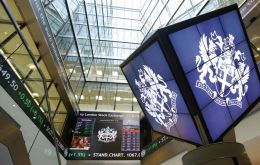
Benchmark oil contract Brent North Sea hit its highest level since late 2014 on Thursday, breaching US$ 80 per barrel, with some market players predicting it could rise all the way to US$ 100. Higher oil prices, in turn, pushed the shares of energy firms in European stock markets higher, helping London's FTSE to set a new all-time high, and the Paris CAC to establish a fresh 2018 peak.
-
Wednesday, May 16th 2018 - 08:53 UTC
Kellogg pulls out of Venezuela. Maduro promises to hand control of the factory to workers

The United States based cereal maker Kellogg is pulling out of Venezuela because of the economic deterioration in the country. Workers said they were prevented from entering the plant in the central city of Maracay on Tuesday. The announcement comes ahead of Sunday's presidential elections.
-
Tuesday, May 8th 2018 - 08:32 UTC
Pence calls on Maduro to suspend sham elections and asks OAS to suspend Venezuela
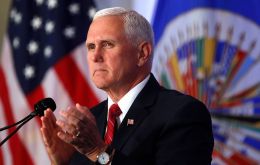
US Vice President Mike Pence on Monday urged Venezuela to suspend a divisive May 20 election he denounced as a “sham,” as Washington slapped fresh sanctions on Nicolas Maduro's regime. In an address to the Organization of American States, Pence slammed the upcoming presidential vote -- boycotted by the opposition and branded illegitimate by much of the international community.
-
Tuesday, May 8th 2018 - 08:14 UTC
Oil rises to US$ 70 a barrel, ahead of Trump's Tuesday decision on sanctions to Iran
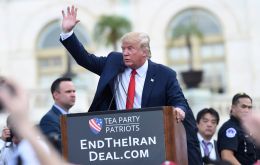
Oil prices rose for the fourth straight day on Monday to hit levels not seen since late 2014, boosted by the latest trouble for Venezuelan oil company PDVSA and the possibility that the United States could re-impose sanctions on Iran.
-
Friday, May 4th 2018 - 08:49 UTC
EU parliament demands Venezuela elections be 'immediate suspended'
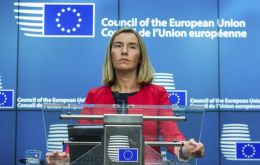
The European Parliament voted on Thursday for the immediate suspension of the presidential elections on May 20 in Venezuela, considering that they do not guarantee any credibility for their lack of transparency and inclusion. In this way, the body and the representative of the European Union (EU) for Foreign Policy, Federica Mogherini, call for the restructuring of an electoral agenda in which there are no outlawed candidates and the necessary electoral guarantees are fulfilled.
-
Saturday, April 28th 2018 - 11:10 UTC
US oil company wins arbitration and Venezuela's PDVSA must pay US$ 2.04bn
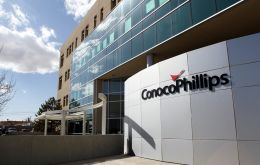
An international arbitration court has ordered Venezuela’s oil company PDVSA to pay ConocoPhillips US$ 2.04 billion for early dissolution of two joint ventures for producing oil in the OPEC-member country, the U.S. firm said.
-
Wednesday, April 25th 2018 - 15:17 UTC
Repression and protests in Nicaragua do not mitigate: Daniel Ortega as Nicolás Maduro?
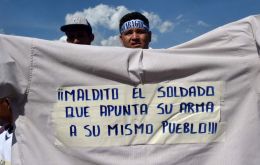
“Ortega and Somoza are the same thing” protesters in Nicaragua yelled last week against the government of Daniel Ortega, after the announcement of a Social Security's reform that unleashed a wave of protests marked by repression and excessive use of force by the authorities. Human rights organizations have announced that at least 30 people have died in the demonstrations, including students, police and a journalist. This surprise wave of civil protests suggests comparing the crisis in the Central American country with the lived in the Venezuela of Hugo Chávez and Nicolás Maduro for years.
-
Monday, April 23rd 2018 - 09:35 UTC
“Involuntary exodus” is forcing 10% of Venezuelan population to abandon their country
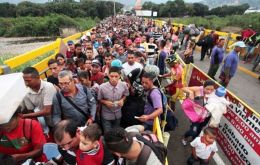
The Organization of American States Secretary General Luis Almagro has sent a message to the Venezuelan people that are experiencing an involuntary exodus, forced upon them by the growing economic and institutional degradation of the country. By the end of this year it is estimated that over 10% of the Venezuela population will have left the country.
